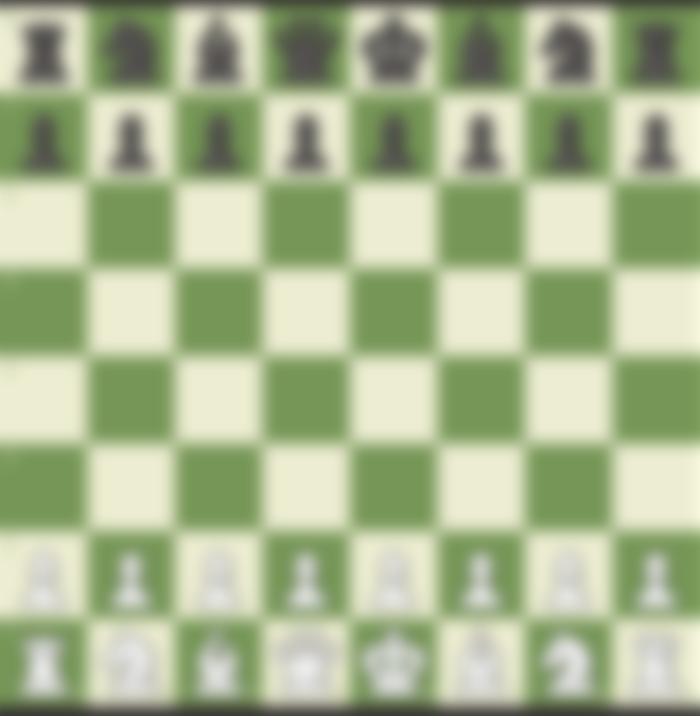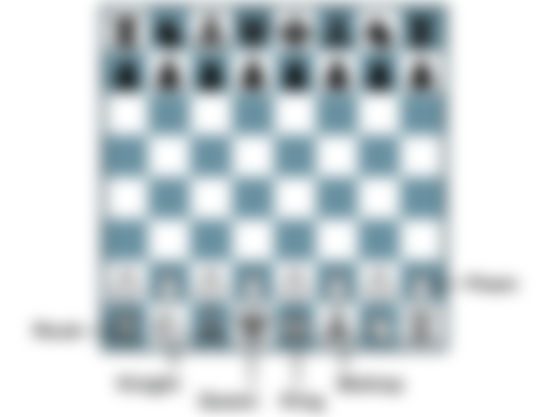Chess: A Game of Strategy and Skill
Chess is a board game that has been played for centuries and is known for its challenging strategy. The object of the game is to capture the opponent's king, and the game can be won in a number of different ways.
Chess is believed to have originated in northern India in the 6th century AD and was later adopted by the Persians. The game spread to Europe in the 10th century and enjoyed great popularity during the Middle Ages.
Today, chess is enjoyed by people of all ages all over the world. If you're new to the game, here are a few tips to help you get started.
What Is Chess?

Chess is a two-player strategy board game that is thought to have originated in northern India in the 6th century AD. The game is played on a square board with a sum total of 64 black and white squares (it can come in other colour combinations like green and white, etc) and 32 pieces in total. The object of the game is to capture the opponent's king.

Each player starts with 16 pieces: one king, one queen, two rooks, two knights, two bishops, and eight pawns. The pieces are placed in the following positions at the beginning of the game: one king on square e1; one queen on d1; two rooks on the first and eighth ranks; two knights on b1 and g1; two bishops on c1 and f1; and eight pawns on the second rank.
How to Play Chess
Chess is a game of strategy and skill. In order to play chess, you must first learn the different pieces and their movement.
The king is the most important piece on the board, and can only move one square at a time, in any direction.
The queen moves any distance horizontally, vertically and diagonally.
The rooks can move any number of squares horizontally or vertically
The knights moves in a L-shape and can jump over other pieces.
The bishops can move any number of squares diagonally.
The pawns move one step forward or two squares on its first move.
The object of the game is to capture your opponent's king. You can do this by trapping your opponent's king so it cannot move, or by attacking it with one of your pieces. If your opponent's king cannot escape to a safe square, it is said to be in checkmate and you win the game.
Chess strategy and tactics
You might be wondering what the difference is between chess strategy and tactics. Strategy is long-term planning—it's what you do to get yourself into a position to win the game. Tactics, on the other hand, are short-term moves—they're the things you do to take advantage of an opportunity or to put your opponent in a bad position.
A good chess player will have a mix of both strategy and tactics in their toolkit. And part of the fun of chess is trying to come up with new and innovative ways to get the upper hand on your opponent.
Tips for Winning at Chess
There are many different ways to capture the king, and the player who can best anticipate their opponent's moves will be more likely to win.
Here are some tips for winning at chess:
1. Pay attention to your opponent's moves.
2. Try to anticipate your opponent's next move.
3. Keep your pieces well-positioned so that you can attack your opponent's king from several directions.
4. Don't be afraid to sacrifice some of your pieces in order to gain an advantage over your opponent.
5. Stay calm and think strategically.
Why Chess Is Good for You
There are plenty of reasons why chess is good for you. For one, it's a great way to exercise your brain. Studies have shown that playing chess can improve your memory, problem-solving skills, and concentration.
And it's not just your cognitive skills that get a workout—chess can also help improve your physical health. One study found that playing chess can help reduce the risk of developing dementia and Alzheimer's disease. And another study found that chess players have a lower risk of stroke and heart attack.
So if you're looking for a way to boost your brainpower and your physical health, chess is a great option.
Conclusion
So there you have it—a crash course in chess! Now that you know the basics of the game, it's time to start honing your skills.
Practice makes perfect, so the more you play, the better you'll become at seeing ahead, making strategic decisions, and outsmarting your opponents. There are plenty of resources out there to help you improve, including online tutorials, YouTube videos, and books on chess strategy.
chess can be a fun and rewarding hobby, and it's a great way to exercise your brain. So what are you waiting for? Grab a board and start playing!


Yes my friend. The Chess game is good in our brain that's why this is the game that I want to learn. My two sisters knows how to play it.